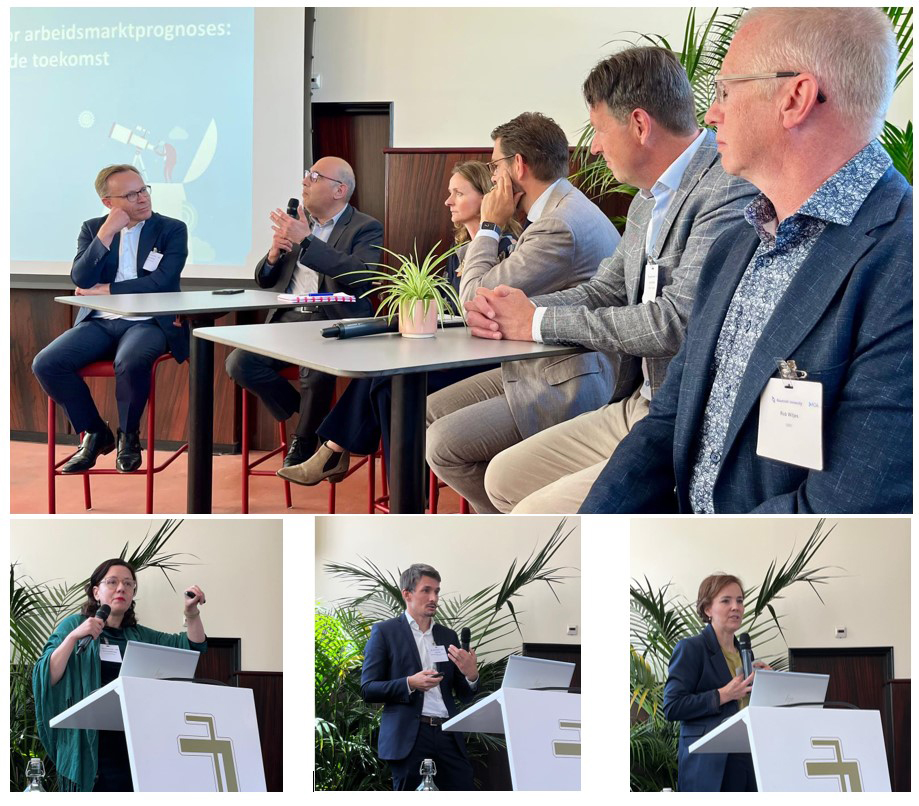ROA Workshop on Challenges for labour market forecasts: navigating the future
− 0 min readProject “Onderwijs-Arbeidsmarkt” Workshop
Today’s labour market has many challenges: shortages, digitalisation, economic and political uncertainty, and AI. For policymakers, employment agencies, educational institutions and students, up-to-date and reliable information on these developments is more important than ever. During the workshop celebrating ROA’s 39 years of labour market forecasts, researchers, policy makers and educational institutions discussed the use and future of labour market forecasts.
-
On the 15th of May, ROA hosted a workshop in which we shared insights on the connection between education and the labour market based on 39 years of ROA labour market forecasts. ROA’s former director and one of the founders of the labour market forecasts in the Netherlands, Andries de Grip (ROA), reminded us about the reasons why we need information from forecasts and reassured us that changes and challenges on the labor market are of all times. Joop Schippers (UU) encouraged us to think about the effectiveness of labor market information for youngsters and the role of education policy in guiding study choice.
Presentations by Jessie Bakens (ROA) on the labour market forecasts in the Netherlands, Tobias Maier (BIBB) on the labour market forecasts in Germany, and Cornelia-Madalina Suta (Cambridge Econometrics) on the labour market forecasts in Europe showed the relevance of information on labour market developments for policy makers and educational institutions, and the importance of reliable data for this type of research.
In the panel discussion led by Didier Fouarge (ROA), discussants Maurice Limmen (VH), Adnan Tekin (MBO Raad), Caspar van den Berg (UNL), Rob Witjes (UWV), Janneke Pieters (CPB) en Ruud Gommers (Van Wijk B.V. – Werkendam) focused on the crucial labour market issues for the coming years. What are the biggest challenges to solve the tight labour market in the Netherlands? What is the role of working conditions, job quality and the (re)valuation of craftsmanship and practical skills? Are we investing enough in technology and what do employers need to speed up these investments? To what extent can technological developments contribute and replace human capital or increase productivity? Are the externalities of economic activities prices correctly and would this solve some of the shortages we face? Can more youngsters be encouraged to choose fields of studies that make them employable in specific professions in sectors with labour shortages? How do we develop a good system of Live Long Learning? What is the role of educational institutions in these developments and what do they need from policy makers? What role does labour market research play in finding effective solutions for these challanges?

